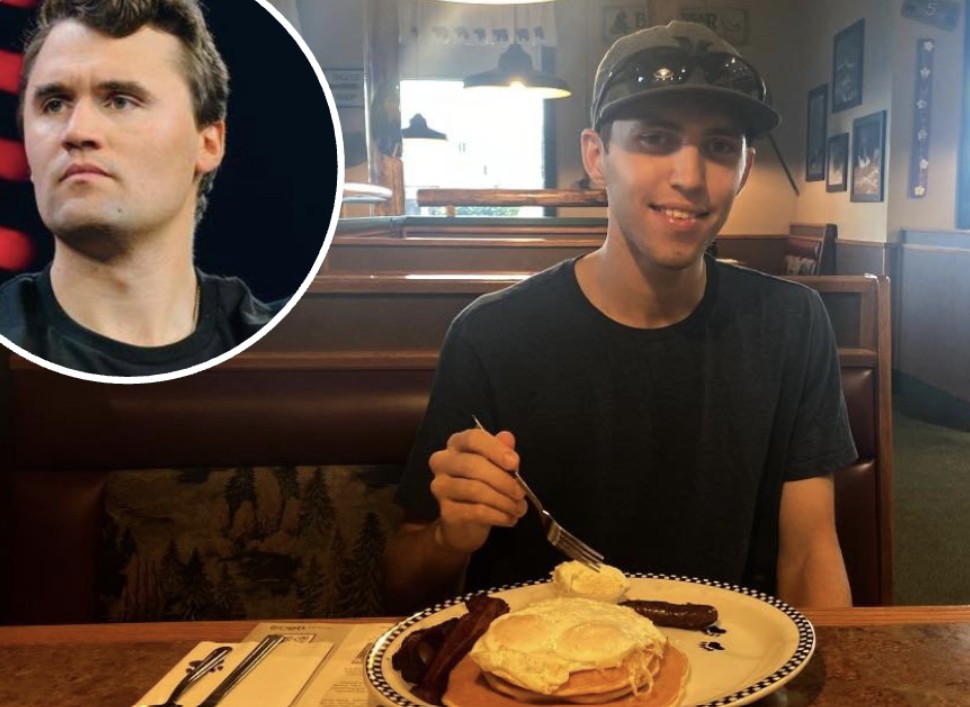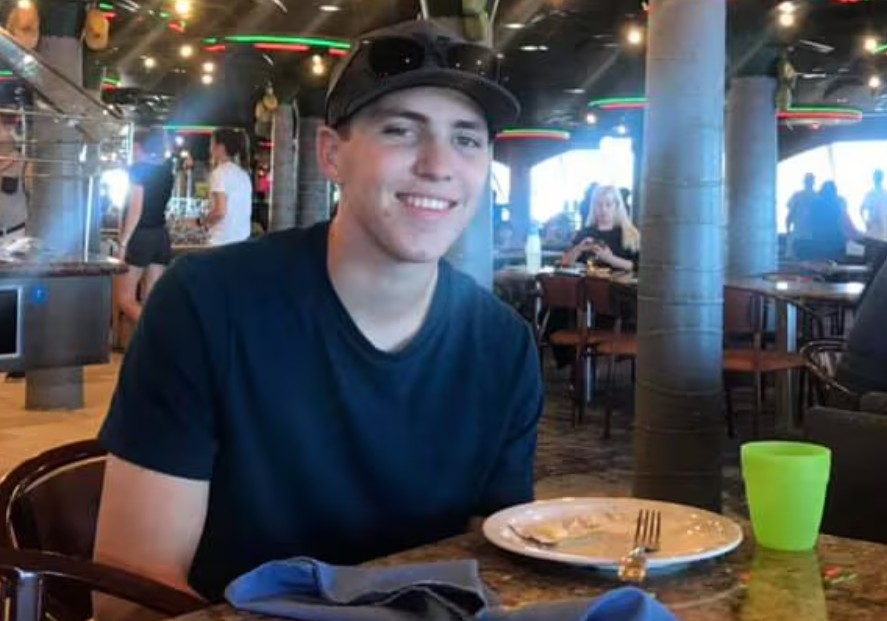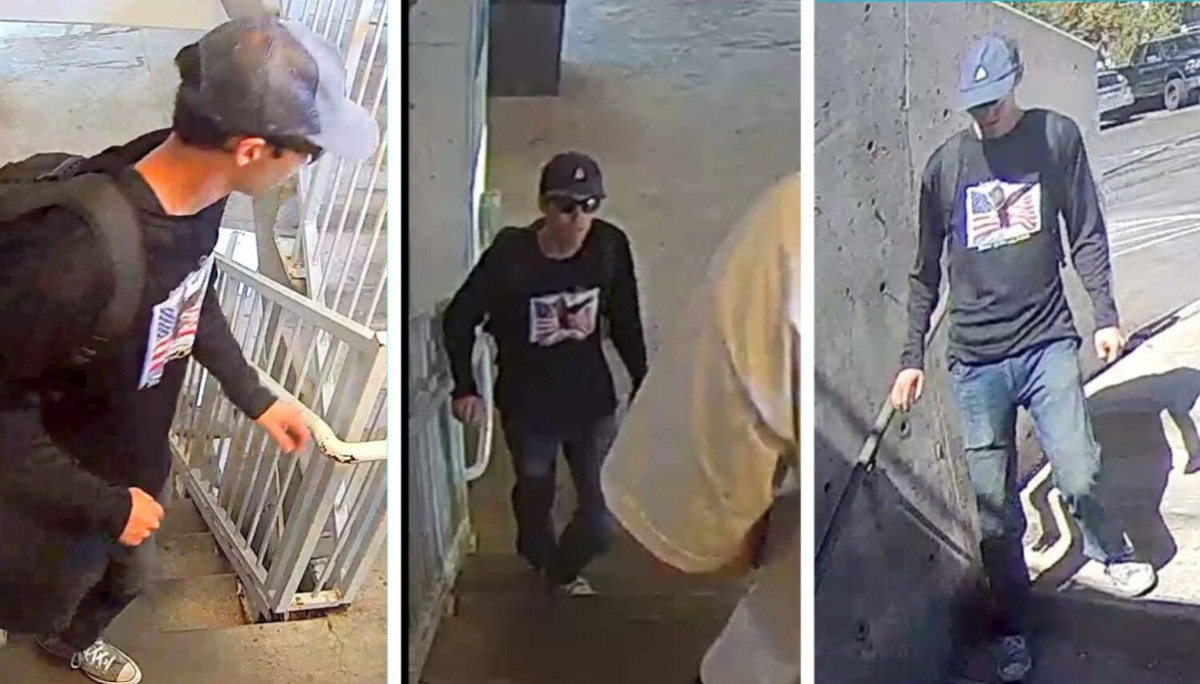Tyler Robinson Video and Allegedly Kill Charlie Kirk
When police finally closed in on Tyler Robinson after a frantic 33-hour manhunt, the story stunned both his quiet hometown of St. George, Utah, and the rest of the nation. The 22-year-old had been identified as the suspect in the rooftop shooting of conservative activist Charlie Kirk, a well-known figure in American right-wing politics.

Authorities say Robinson fired from a vantage point at Utah Valley University, killing Kirk during a public event before fleeing and abandoning his rifle in a wooded area nearby. The case has left investigators, journalists, and communities across the political spectrum grappling with a set of haunting questions: how did a shy, academically gifted student from a tight-knit family transform into an alleged political assassin? And what role, if any, did online subcultures, meme culture, and ideological shifts play in shaping his trajectory?
Contents
A National Shock and Video
The killing reverberated across America almost instantly. It followed a string of attempted and successful attacks against political leaders, intensifying concerns about the rise of politically motivated violence. Utah Governor Spencer Cox described the engraved inscriptions found on Robinson’s bullet casings as “disturbing evidence that speaks for itself,” adding that the case must be understood both as an act of violence and as a potential political statement.
The video of Tyler Robinson that caused the incident needs to be brought to justice
Yet those very inscriptions ranging from a mocking “If you read this, you are gay LMAO” to lyrics from the Italian anti-fascist anthem Bella Ciao point to the tangled world Robinson seemed to inhabit: one where online irony, gaming culture, and political references blended into an often indecipherable code.
Early Life in St. George
To neighbors, Robinson appeared to be the quintessential suburban son. His family lived in a friendly residential area of St. George, a southwestern Utah city known for its red-rock landscapes and quiet lifestyle. His parents, registered Republicans, were remembered as approachable and helpful community members. Social media showed the family on vacations, hiking together, and occasionally posing with firearms at outdoor ranges.

Robinson himself excelled in school. At Pine View High School, he maintained a perfect 4.0 GPA, scored well on standardized tests, and was active in hobbies such as gaming and card tournaments. A former classmate remembered him as “quiet all the time” but also “fun to be around kind of goofy, not someone who got into trouble.”
Politically, Robinson’s family leaned strongly conservative. Ahead of the 2020 election, classmates recalled them as “diehard Trump” supporters. At that time, Robinson appeared to share those views, although few remember him speaking passionately about politics.
Promising Academic Start
Graduating in 2021, Robinson seemed on track for a successful future. His mother proudly filmed him reading a letter from Utah State University offering a four-year merit scholarship. He enrolled as a pre-engineering student and moved north for his freshman year.

But after just one semester, Robinson left the university on a leave of absence and never returned. The reasons remain unclear. Friends noted that the transition away from home had been difficult, and his once bright academic path seemed to stall.
Back in St. George, Robinson enrolled at Dixie Technical College, where he joined the electrical apprenticeship program. By 2022, he had obtained an apprentice electrician license, and according to the school, he was still technically a third-year student at the time of his arrest. A colleague on a recent job described him as shy but reliable: “He wasn’t talkative unless he was spoken to. He didn’t really talk politics unless someone else brought it up.”
Immersed in Online Culture
While Robinson’s academic path shifted, one passion remained constant: video games. Classmates and friends consistently described him as “very, very big into gaming” and interested in video game design. At school, he and friends often spent lunch breaks playing card games or discussing their favorite titles.
Social media photos suggested a deep immersion in online meme culture. One Halloween post by his mother joked that Robinson had dressed as “some guy from a meme.” Other posts showed him enjoying outdoor activities with family, but also comfortable handling firearms.
These interests echoed in the inscriptions police discovered on his abandoned rifle. Alongside explicitly political phrases such as “Hey fascist! Catch!” were references to popular culture: arrow patterns from Helldivers 2, the song Bella Ciao (which re-emerged in games like Far Cry 6 and on Netflix shows), and even trolling humor. For investigators, these overlapping references blurred the line between sincere ideology and irony-laden internet jokes.
Shifting Political Identity
Accounts of Robinson’s political views varied widely. Some former classmates remembered him as a conservative teen aligned with his family’s Trump support. Yet more recent acquaintances, such as his electrician coworker, insisted he rarely expressed strong opinions other than clear dislike for Donald Trump and Charlie Kirk.
Public records added to the ambiguity. According to the Washington County clerk, Robinson was registered to vote but unaffiliated with any political party, and he never cast a ballot.
Governor Cox later revealed that a family member told investigators Robinson had grown “more political in recent years.” At a recent family dinner, he allegedly criticized Kirk, calling him hateful and saying his rhetoric spread hate. This detail, combined with the engravings, has fueled speculation of a political motive. Still, those who knew him closely struggle to reconcile the alleged act with the quiet, shy young man they once knew.
The Shooting
On the afternoon of the attack, Charlie Kirk was addressing students and supporters at Utah Valley University. According to investigators, Robinson had positioned himself on a rooftop overlooking the event. Armed with a bolt-action rifle, he allegedly opened fire, fatally wounding Kirk before fleeing the scene.
The gun was later found in a wooded area near campus, engraved with phrases that became central to investigators’ search for motive. The attack triggered an enormous law-enforcement response. Federal and local officers worked side by side, releasing surveillance images and urging the public to come forward with tips.
Capture Through Family Intervention
Robinson’s capture ultimately came not from a police sweep but from his own family. As authorities circulated photos of the suspected shooter, Robinson’s father recognized his son. “Tyler, is this you? This looks like you,” he asked, according to law-enforcement sources. Robinson admitted it was him but initially resisted surrender, saying he would rather end his life.
His father persuaded him to speak with a youth pastor. After that conversation, Robinson agreed to give himself up. The family helped arrange his transfer into custody, ending a tense 33-hour manhunt that had left campuses, communities, and political groups on edge.
Community Shock and Disbelief
In St. George, news of Robinson’s arrest spread quickly. Neighbors expressed disbelief. Jesse Garcia, who lived a few houses away from the Robinsons, said, “I would have never thought that about him. He seemed like a normal person.”
Others echoed similar sentiments: a 25-year-old neighbor in his apartment complex described him as “super reclusive,” rarely seen outside. Another thought Robinson was probably Republican, not realizing his views had shifted.
Classmates recalled his humor and gaming obsessions, but no troubling signs. “He just was kind of shy and didn’t open up very often,” one said. Many in the community remain stunned that someone they once saw as a quiet, even goofy teenager is now accused of a deadly political shooting.
Investigating Motive
Authorities are cautious in drawing conclusions. While the engraved casings and family reports suggest a political motive, the mix of memes and trolling language complicates the picture. Investigators are examining Robinson’s digital footprint, online activity, and possible connections to extremist networks.
So far, Robinson has not spoken to investigators. Without his testimony, much remains speculative. Was the shooting the culmination of ideological radicalization? A distorted joke turned into deadly action? Or some combination of personal disillusionment, political anger, and online immersion?
A Broader Pattern
The case adds to growing concerns about violence directed at political figures. In recent years, both high-profile politicians and activists have faced threats or attacks from across the political spectrum. Experts warn that online spaces, where humor, ideology, and irony collide, make it harder to identify individuals at risk of turning violent.
For law enforcement, the Robinson case underscores the difficulty of interpreting digital signals. A song lyric or meme might appear harmless in one context but take on darker meanings in another. The engraved casings encapsulate this challenge: part political statement, part gaming reference, part trolling.
Where the Case Stands
As of now, Robinson remains in custody. Authorities are expected to pursue formal charges, though details of the court process have not yet been released. Investigators continue to analyze forensic evidence, review his online history, and interview family members, neighbors, and acquaintances.
The unanswered questions are many. Why did Robinson abandon his once promising academic path? How did his political identity evolve from conservative teenager to alleged anti-fascist shooter? And to what extent did online communities shape his worldview?
The story of Tyler Robinson resists simple categorization. He was an academic high achiever, a shy and goofy classmate, an aspiring electrician, and a devoted gamer. He was also, according to police, the rooftop gunman who killed Charlie Kirk.
For his community, the contrast is jarring. For the nation, the case is another warning of the unpredictable intersections of politics, culture, and violence in an age when irony, ideology, and firearms collide. As investigators dig deeper, the haunting question lingers: how does a seemingly ordinary life diverge so drastically into tragedy?
Hot News -Charlie Kirk Shooting Video on X (Twitter) Reddit and Close Up
Isabella Ladera y Beéle video viral con Erome and Controversy
Iryna Zarutska Video and The Day of the Incident
Louisa Jespersen and Maren Ueland Video and Crime
Ikbal Uzuner Video and The Father’s Testimony
Major Galore Viral Video on Twitter and Public Reaction
Minneapolis Shooting and Robin Westman Youtube Video

